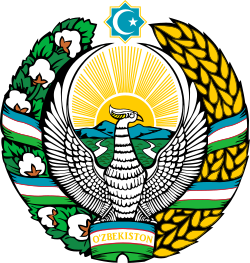
Uzbek Language and Culture Outreach in the USA: Collaborative Initiatives and Growing Interest
A delegation from Uzbekistan's Higher Education sector has embarked on a journey to Washington, USA. The city is set to host the prestigious Association of International Education Administrators (AIEA) conference from February 18th to 21st, 2024. Nozliya Normurodova, the Vice-Rector for International Cooperation at TSUULL, is actively engaged in the conference as one of the delegates.
The International Association of Education Administrators Conference aims to explore targeted strategies for global educational cooperation. By engaging a diverse range of stakeholders and fostering effective partnerships, educational institutions worldwide can advance sustainable development goals and enhance their international presence.
The 2024 conference includes wide range of activities such as keynote speeches and plenary sessions featuring renowned speakers and thought leaders in education, concurrent sessions, workshops, and panel discussions on various topics related to education administration, poster presentations showcasing research projects, case studies, and best practices, networking opportunities, receptions, and social events to facilitate collaboration and exchange among participants, exhibitions and showcases highlighting innovative products, services, and solutions in education administration.


Upon arrival, the delegation was warmly received at the Embassy of Uzbekistan in Washington by the Uzbekistan's Ambassador to the USA, Furqat Siddikov. Nozliya Normurodova took the opportunity to brief the ambassador on the endeavors of the "Uzbek School" at TSUULL, aimed at promoting Uzbek language and culture abroad. She presented series of the book "Uzbek Language for Foreigners" meticulously written by experts adept in intensive Uzbek language instruction for foreigners, to the embassy. In response, Ambassador Furqat Siddikov highlighted the expanding Uzbek diaspora in the United States and the growing interest among Americans in Uzbekistan. Recognizing the increasing demand for Uzbek language and cultural education, he pledged continuous support for TSUULL's initiatives. He proposed various collaborative efforts, including organizing online Uzbek language courses taught by "Uzbek School" instructors and joint project implementation. Discussions also revolved around future cooperation, including the potential establishment of an Uzbek language and culture center in the USA.






